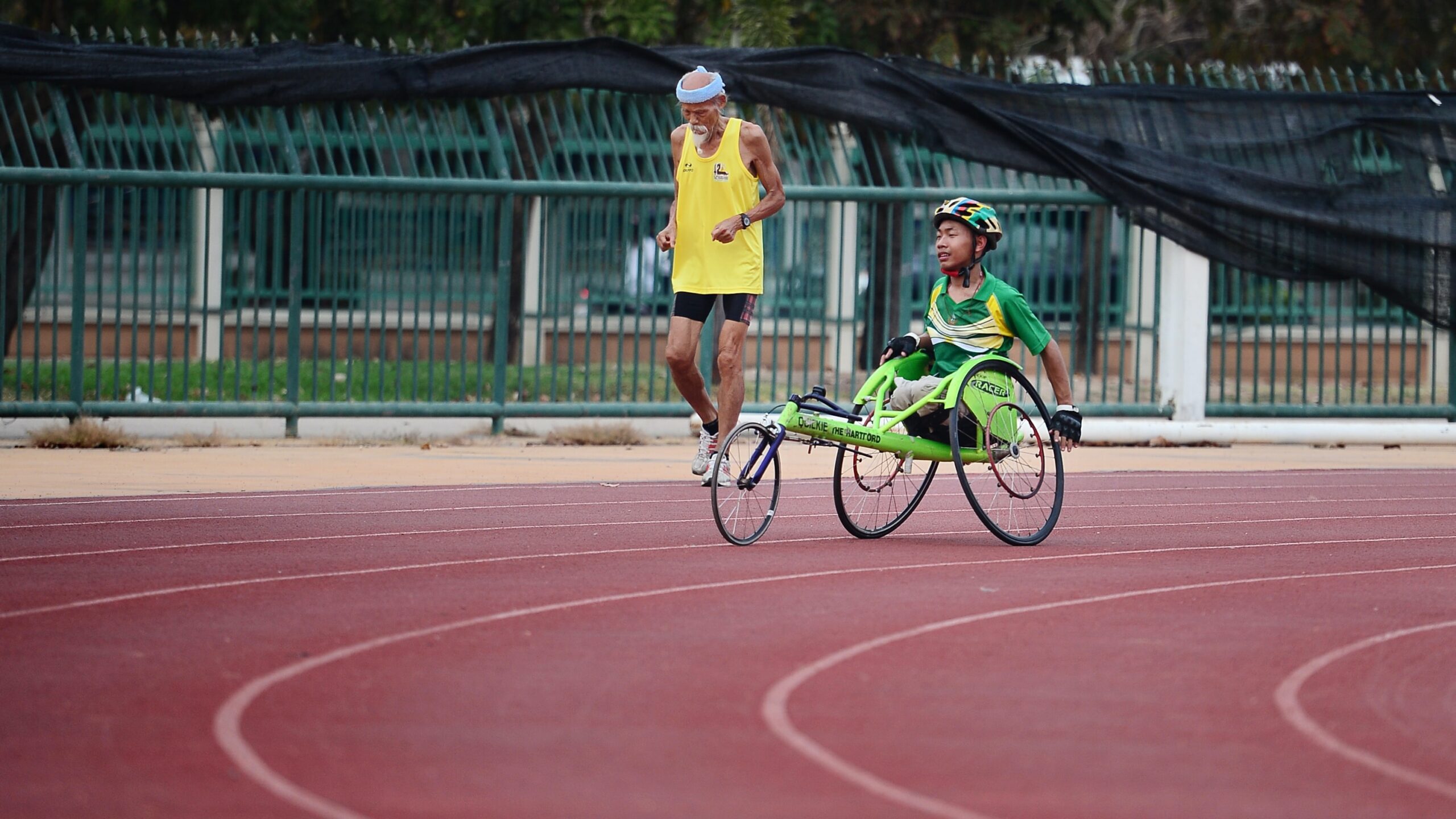No products in the cart.

Breaking Barriers: The Soaring Popularity of Disabled Sports
In a world that is increasingly embracing diversity and inclusivity, it’s heartening to see the growing interest and enthusiasm for disabled sports. What was once on the periphery of the sports world has now moved centre stage, breaking stereotypes and inspiring individuals of all abilities. In this blog post, we’ll explore why disabled sports are becoming more sought after and the incredible impact they have on athletes and society as a whole.
1. The Power of Representation
One of the primary reasons for the surge in popularity of disabled sports is increased visibility. Paralympic Games, adaptive sports championships, and media coverage have brought disabled athletes into the spotlight. As these athletes share their incredible stories and achievements, they become role models for individuals with disabilities and demonstrate that anything is possible with determination and effort.
2. Advancements in Sports Equipment and Technology
Advancements in sports equipment and technology have played a significant role in making disabled sports more accessible and exciting. Customised wheelchairs, prosthetics, and adaptive equipment have levelled the playing field, allowing athletes to compete at the highest levels. These innovations have opened up a world of opportunities for athletes with disabilities.
3. Inclusivity Initiatives
Inclusivity is no longer just a buzzword; it’s a movement. Sporting organisations, schools, and communities are actively working to create inclusive environments that welcome athletes of all abilities. Initiatives like unified sports programmes, which bring athletes with and without disabilities together on the same team, promote camaraderie and understanding.
4. Growing Spectator Interest
Disabled sports have gained a passionate following among spectators. Paralympic events draw millions of viewers worldwide, showcasing the talent and dedication of disabled athletes. The excitement and drama of these competitions are on par with traditional sports, captivating audiences and fuelling interest in disabled sports.
5. Inspirational Stories and Human Triumphs
Disabled sports are a testament to the indomitable human spirit. Athletes overcome adversity, defy expectations, and achieve extraordinary feats. Their stories of resilience, determination, and triumph resonate with people of all backgrounds, inspiring them to pursue their dreams and push past their own limitations.
6. Investment and Sponsorship
The increasing popularity of disabled sports has attracted more investment and sponsorship. This financial support has allowed athletes to access better training facilities, coaching, and support services, ultimately raising the overall quality of competition.
7. Building Awareness and Changing Perceptions
Disabled sports have the power to challenge stereotypes and change societal perceptions of disability. When people see athletes with disabilities competing at elite levels, it shifts the narrative from one of limitation to one of limitless potential. This change in perception has a ripple effect, promoting inclusivity and breaking down barriers in various aspects of life.
8. Health and Well-being Benefits
Participation in disabled sports offers numerous physical and mental health benefits. Regular physical activity improves cardiovascular health, strength, and flexibility. It also provides a sense of accomplishment and boosts mental well-being, combating issues like depression and anxiety that can affect individuals with disabilities.
Conclusion
The increasing popularity of disabled sports is a testament to society’s evolving mindset towards inclusivity and diversity. These sports are not just about competition; they are about breaking down barriers, changing perceptions, and celebrating the incredible potential of individuals with disabilities. As the world continues to embrace disabled sports, we can look forward to a future where all athletes, regardless of their abilities, are given the opportunity to shine on the global stage. So, whether you’re an athlete, a sports enthusiast, or simply someone who believes in the power of human potential, celebrate and support the rise of disabled sports—it’s a movement that’s here to stay.


